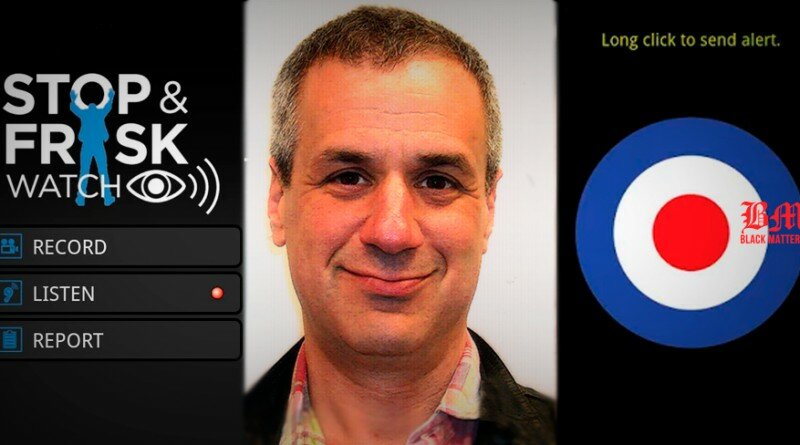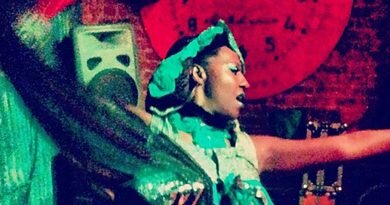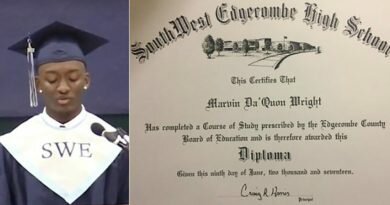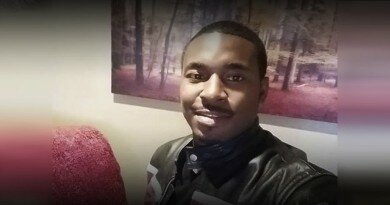blackmattersus.com
How did the idea of your first app come into your mind? What inspired you?
Jason Van Anden
I wrote an app in 2011 called I’m Getting Arrested. And it was written as my way of participating in Occupy Wall Street. At the time, I had a 2 year old at home and going out to demonstrate with a stroller wasn’t really an option. A friend of mine’s girlfriend was almost arrested on the Brooklyn Bridge and we were chatting as this was happening, so the idea of creating an app that would allow people to instantly send a message in the event that they were arrested from their mobile phone was a good tool for protestors to have. So I ended up creating the first mobile panic button app and it kind of got a lot of attention in 2011. It was released just as Occupy Wall Street was starting to get attention and it became a symbol of sorts of the Occupy Movement.
The app went viral in 2011. At the end of 2011, the New York Civil Liberties Union reached out to me and asked if I could make an app like “I’m Getting Arrested” but to address stop and frisk in New York City. I live in one of the neighborhoods that was highly targeted for stop and frisk so I saw a lot of the police interaction. I’m white so I was immune which is unfair.
The notion of someone reaching into their pocket to trigger “I’m Getting Arrested” seemed like a dangerous thing to do given that concern for guns was the reason given for the stop and frisk policy. The police might assume that the person they were approaching for a gun was reaching for a gun! We had some ideas for other apps based on “I’m Getting Arrested,” such as videotaping from a bystanders perspective, so we took this direction instead.
blackmattersus.com
Did you get any problems with law enforcement after you released your apps?
Jason Van Anden
Yeah. There are 3 features in the Mobile Justice app. There’s record, there’s witness and then there’s report. Witness mode broadcasts the location a recording is taking place to people within the vicinity so that they can come and witness the event themselves because people have a right to do this. This was the most controversial feature as far as the police were concerned. So in 2012 when we released the app the police expressed concern that this app was going to allow criminals to alert each other as to where the police were. This is the main controversy that we got feedback on from the police commissioner and the mayor’s office at that time.
But sometimes the police are on the same page. Sometimes they think that it’s great that people can record if they find something that’s actionable and can help in an investigation, they’d like it to be shared with them. So it depends, I guess, on the police department and their relationship with their constituency.
blackmattersus.com
How successful are the applications now? How many people use the applications?
Jason Van Anden
There are about half a million installations of these types of apps at this point. We have I think at least 22 different versions of this technology around the world and what’s interesting is that it’s hard to measure the success because in 2012 people were not necessarily clear that they could record the police, so one of the things that the apps do is to let people know that they do have this right. So clearly, there have been a lot of documentations using mobile phones since the apps were released that you can’t measure the success relative to the apps themselves.
blackmattersus.com
What’s the main difference between the 3 apps? Why not combine these 3 apps into one?
Jason Van Anden
The way that the technology works is that the apps record and send videos to an honest broker. So the New York Civil Liberties Union app’s honest broker was the New York Civil Liberties Union so all the videos from that stop and frisk watch were sent there. Each state has different rules in terms of what’s allowed. So each state has been releasing their own apps so that they can make sure that they are the ones receiving the videos and that they’re being received so they can be processed by the appropriate group. There are different features in different versions of the app that are different for each organization. For instance, there’s a London based app called Watchdog that allows users to record incidents to the police or to Watchdog. So each app might have the right sections that might be specifically tailored for the right area, what you can do in terms of protests and demonstrations.
blackmattersus.com
Have you had any personal experience with police brutality that you use as inspiration for your work?
Jason Van Anden
No, I’ve not had any problems with the police myself. I live in probably one of the most diverse neighborhoods in the U.S. I know police officers. I believe that most of them do their jobs incredibly well and I’m very glad that they are police officers. I want my neighbors to feel the same way. And the stop and frisk campaign at the time was having a counterproductive effect on the relationship between the constituents that they were tasked to represent and the police. And frankly this isn’t fair. In our neighborhood there’s absolutely gun violence and it’s more likely than not that the people causing the violence are African-American, but there’s absolutely no reason to randomly take African-Americans off the streets and hassle them. The number of people who are actually causing the trouble is just a tiny percentage of the population. And furthermore, if they wanted it to be fair, they should’ve done something like they did after 9/11. After 9/11, the Federal Government was very sensitive to not racially profiling Arabic or Persian looking people. If you went to the airport, they didn’t just stop you because you looked foreign. In reality, what they did was, they picked people randomly as they went through security, so it was a more egalitarian process. I can see how stopping people and frisking them will deter people from walking around with guns. But they should have done it at random. I should have endured this hassle as my neighbors of different colors.
blackmattersus.com
Do you have any data concerning the people who use your applications? What race they belong to?
Jason Van Anden
I don’t collect that kind of information. I don’t really have permission to have access to that kind of data and I don’t believe that kind of data is being analyzed that way right now. I can tell you that tens of thousands of videos have been recorded and close to half a million installations are in people’s phones. I don’t know in terms of demographic information. After Stop and Frisk Watch was released in 2012, stop and frisk incidents dropped 66% in the first year. This was part of a campaign NYCLU put together to change the policy, including protests and formally asking the attorney general to investigate.
What you can’t measure in a campaign like this is: are people videotaping the police more because these apps exist, are the police behaving differently because of the fact that these apps exist, has it caused a change in behavior?
blackmattersus.com
Do you think filming police helps to improve the situation or does it just make them angrier?
Jason Van Anden
I have to imagine that people have always had the right to witness these events and report them. The evidence from a video camera is clearly a lot stronger than somebody complaining in text. It’s not that the videotaping of these kinds of events is new, clearly the convenience of having a video camera in your pocket is really powerful in terms of citizen engagement. In terms of making the police angrier, I have no idea. I know most police officers are doing their jobs for noble reasons, so these apps discourage the bad apples from ruining or changing the relationship with the citizenry so it’s a good thing. The same impact may be occurring with police cameras. People doing illegal things are aware they’re being taped by the police so it’s happening on both sides.
blackmattersus.com
What plans do you have for future applications? Are there any applications in the works?
Jason Van Anden
We’re working with a variety of organizations to try and make this available. I much prefer people use cameras than guns. We have a variety of interesting projects along these lines. Some are international apps and some are interesting U.S. based apps.








